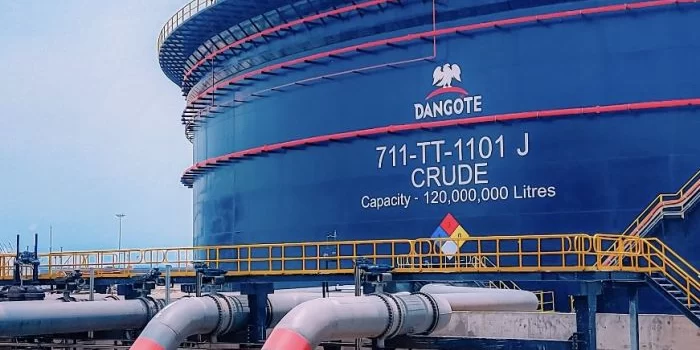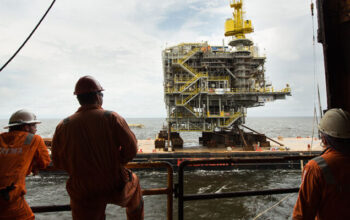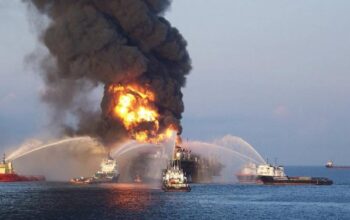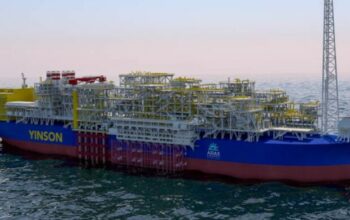Analysts and traders anticipate that Nigeria’s Dangote oil refinery could disrupt the longstanding gasoline trade from Europe to Africa, valued at $17 billion annually.
This development is poised to escalate pressure on European refineries, which are already grappling with closure prospects amid heightened competition.
Commencing production in January after a $20 billion investment, the refinery has a capacity to refine up to 650,000 barrels per day (bpd), making it the largest in Africa and Europe upon reaching full capacity either this year or the next.
Positioned as a critical milestone in Nigeria’s pursuit of energy independence, the refinery holds significant promise for a nation that, despite being Africa’s most populous and leading oil producer, relies heavily on fuel imports due to limited refining capacity.
Kpler data reveals that about a third of Europe’s average gasoline exports to West Africa, totaling 1.33 million bpd in 2023, primarily find their way to Nigeria.
Eugene Lindell, head of refined products at consultancy FGE, underscores the potential challenges for European refineries ill-equipped to meet stringent environmental standards for other markets.
He estimates that 300–400,000 bpd of refining capacity in Europe may face closure due to escalating global gasoline production.
According to Andon Pavlov, an analyst at Kpler, coastal refineries tailored for exports are more vulnerable, while inland refineries relying on local demand are comparatively less exposed.
As concerns over gasoline oversupply loom, executives anticipate accelerated closures, with refineries like Grangemouth in the UK and Wesseling in Germany potentially shutting down earlier than scheduled.
Petroineos CEO Franck Dema and Shell attribute such decisions to factors like the energy transition and carbon emissions reduction efforts.
The Dangote refinery’s emergence coincides with the tightening of environmental regulations in Northwest Europe, necessitating plant reconfigurations or market diversification for lower-quality gasoline.
Despite potential opportunities to redirect gasoline exports to regions like the U.S. or South America, challenges persist, including difficulty in securing financing for refinery upgrades.
Banks, wary of funding fossil fuel projects, impose high interest rates, rendering such endeavors financially unviable, as noted by a senior executive from a major U.S. bank.
In summary, the operationalization of the Dangote oil refinery promises to reshape the dynamics of the European-African gasoline trade, presenting both opportunities and challenges for stakeholders in the refining industry.
![]()




